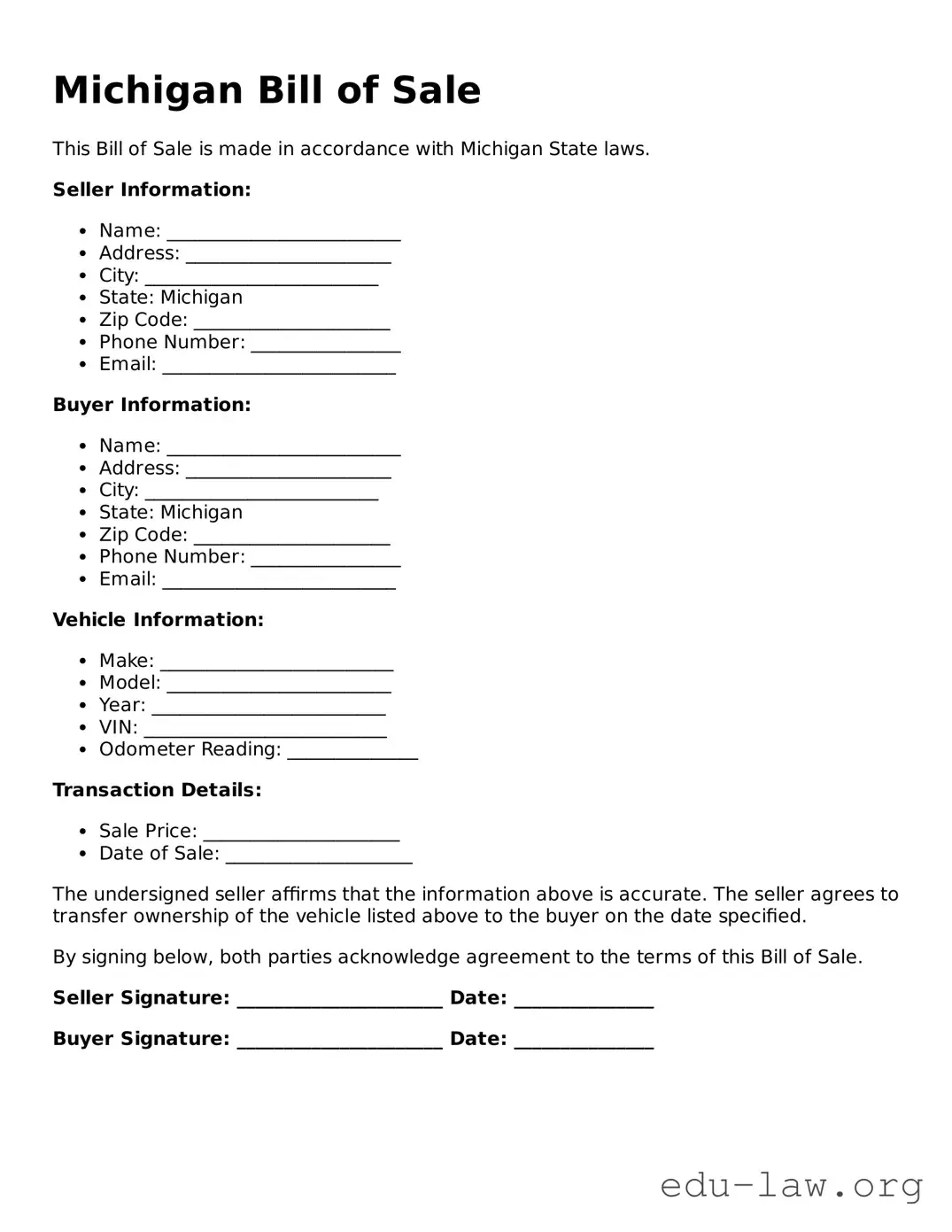What is a Michigan Bill of Sale form?
A Michigan Bill of Sale form is a legal document used to record the transfer of ownership of personal property in the state of Michigan. This form protects both the buyer and the seller by providing proof of the transaction, detailing what was sold, and confirming the sale date.
Is a Bill of Sale required in Michigan?
While a Bill of Sale is not legally required for most personal property transactions in Michigan, it is highly recommended. Having this document can help avoid disputes between the buyer and seller regarding ownership or the terms of the sale in the future.
What should be included in a Michigan Bill of Sale?
A complete Bill of Sale should include information such as the names and addresses of both the buyer and seller, a description of the item being sold, the date of the sale, the sale price, and signatures from both parties. The more detailed the document, the better protection it offers.
Can I use a generic Bill of Sale form in Michigan?
Yes, you can use a generic Bill of Sale form, but it is advisable to use one that is specific to Michigan. This ensures that the document adheres to local laws and includes the necessary elements for validity in the state.
Do I need to get the Bill of Sale notarized?
Notarization is not a requirement for the Bill of Sale in Michigan. However, having the document notarized can provide an additional layer of legitimacy and may assist in resolving disputes should they arise later on.
What properties can be sold using a Michigan Bill of Sale?
The Bill of Sale can be used for various kinds of personal property, including vehicles, boats, trailers, appliances, and other tangible goods. However, it cannot be used for real estate transactions, which require different documentation.
Is a Bill of Sale necessary for vehicle sales in Michigan?
Yes, a Bill of Sale is particularly important for vehicle sales in Michigan. It acts as proof of the transaction and may be required for registration and titling purposes. While the state issues its own vehicle Bill of Sale template, you can still create your own if it meets the requirements.
What happens if I lose my Bill of Sale?
If you lose your Bill of Sale, it may complicate matters if a dispute arises over ownership. You may be able to request a copy from the other party if they have retained theirs. It is also wise to keep digital copies to avoid losing the document in the future.
What if there is a disagreement after the sale?
If disagreements arise after the sale, the Bill of Sale serves as a critical piece of evidence. It clearly outlines the terms of the agreement. If legal action becomes necessary, this document can help establish your case.
Can I modify a Bill of Sale after it has been signed?
Once a Bill of Sale has been signed, altering it may lead to confusion and potential disputes. If changes are needed, both parties should mutually agree to the new terms and sign an amendment or a new Bill of Sale instead.
